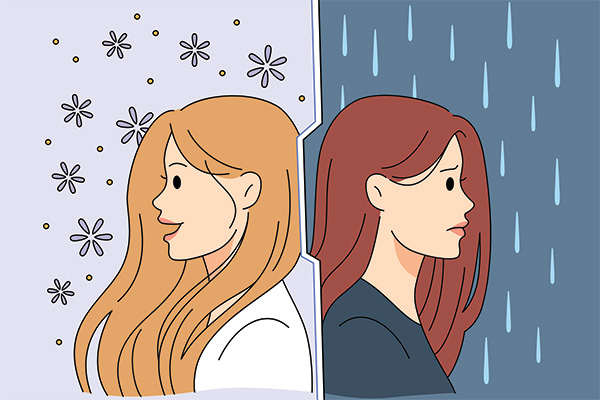Living with bipolar disorder can be an emotional rollercoaster. The highs feel euphoric but are often followed by crippling lows filled with hopelessness. Mood swings happen frequently and without warning, making normal routines extremely difficult.
Medication helps stabilize emotions, but side effects can be challenging. Relationships with loved ones are strained during episodes of mania or depression. Staying on top of treatment, getting good sleep, reducing stress, and maintaining support systems are all critical for managing this condition. With proper care, many people with bipolar lead productive and fulfilling lives, though it requires constant vigilance.
Stick To A Routine
What's Inside
Establishing and sticking to a daily routine can be hugely beneficial for people with bipolar disorder. Going to bed and waking up at consistent times, eating meals at regular intervals, and scheduling activities/appointments can help regulate mood and energy. This routine is why many people benefit from residential treatment for bipolar disorder.
Get Adequate Sleep
Getting enough good quality sleep is crucial for people with bipolar disorder. During manic episodes, reduced need for sleep is common, but lack of sleep can worsen symptoms. Getting adequate sleep helps stabilize mood. During depressive episodes, increased sleep is common, but too much sleep worsens depression.
Sticking to a regular sleep routine with roughly the same bedtime and wake time daily can help regulate sleep-wake cycles. Maintaining good sleep hygiene by limiting light exposure, noise, and stimulation before bedtime and avoiding naps can support healthy sleep. Sleep is not a cure for bipolar disorder, but improving sleep patterns can aid overall mood stability.
Exercise Regularly
Regular aerobic exercise has a stabilizing effect on mood and energy. Aim for 30 minutes of activity most days of the week. Walking, swimming, or dancing are great options.
Eat a Healthy Diet
Eating a nutritious diet is crucial for people with bipolar disorder. Foods rich in omega-3 fatty acids, fruits, vegetables, and whole grains help stabilize mood swings. Avoiding heavily processed foods, added sugars, and caffeine is also recommended, as they can exacerbate symptoms. Getting adequate protein, vitamins, and minerals supports overall brain health.
Staying hydrated and avoiding alcohol supports medication effectiveness and reduces side effects. Following a regular eating schedule with balanced meals and snacks helps maintain steady energy levels. Overall, being mindful of dietary choices can make a big difference in managing bipolar disorder.
Take Medications Consistently
Medication is often a foundational treatment for bipolar disorder. Taking medications regularly as prescribed can prevent or reduce the severity of mood episodes. Use a pill organizer and daily reminders.
Reduce Stress
High stress can trigger bipolar episodes. Practice relaxation techniques like yoga, meditation, or deep breathing. Simplify commitments and say no to nonessential obligations.
Get Therapy and Support
Ongoing psychotherapy helps develop coping skills. Joining a support group connects you with others facing similar challenges. Enlist loved ones to help monitor symptoms.
Avoid Drugs and Alcohol
People with bipolar disorder need to be very cautious about consuming alcohol or using drugs. Substance use can worsen bipolar symptoms and trigger manic or depressive episodes. For those with bipolar disorder, avoiding alcohol and recreational drugs is an important part of effective illness management and maintaining mental health.
Keep a Mood Journal
Tracking symptoms daily helps identify triggers and patterns. Note factors like mood, sleep, diet, and stress. Bring the journal to doctor appointments.
Stimulate Creativity
Pursuing creative hobbies and interests provides an outlet for expression and boosts self-esteem. Try painting, scrapbooking, knitting, writing, or playing music.
Making lifestyle adjustments enables people with bipolar disorder to manage their symptoms, pursue personal goals, and live full, meaningful lives. Being patient with yourself and working closely with your treatment team makes the process easier. With proper self-care, you can thrive with bipolar disorder.




